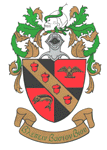

The Beta Beta Beta Biological Honor Society was founded in 1922 by Dr. Frank G. Brooks at Oklahoma City University. Local chapters at several other Midwestern colleges were established in the coming years, and the national organization was formed in 1925 by three faculty members: Dr. Brooks together with Dr. William M. Goldsmith from Southwestern College in Winfield, Kansas, and Dr. John C. Johnson, Sr. from Western State College in Colorado. Since that time biennial conventions with both student and faculty representatives have been held regularly with only a few exceptions. A Silver Anniversary Convention in Chicago, Illinois, in 1947 and a 50th Anniversary Celebration in Washington, DC in 1972 have been regarded as special celebrations. The number of chapters and number of new initiates per year has increased steadily. As of 1995 there were 380 chapters; in total over 137,000 young biologists have been inducted as regular members of TriBeta in addition to thousands of associate members.
The National President elected at the first meeting in 1925 was Dr. William Goldsmith. Dr. Johnson became Vice President and acted as liaison officer in contacting other schools and establishing new chapters. Dr. Brooks became Secretary-Treasurer, an office he continued to hold until his death in 1955. He was also instrumental in 1930 in establishing BIOS, the journal of the society and acted as its managing editor. Thus, Dr. Brooks served as the great mainstay and inspiration of this organization all through the early years, and after his death his wife, Laura Jean Books, took over his positions and carried them out until her retirement in 1967.
A succession of other able officers as well as chapter faculty counselors and participating students have seed and furthered the d development of TriBeta. A complete account of the history to 1972 is to be found in BIOS, 51, 1 (March 1980). The present structure of the society is the result of continued growth and change over the years, and this booklet can only outline briefly the many facets and activities of our organization.
Beta Beta Beta Biological Honor Society is a society for students, particularly for undergraduates. It seeks to encourage scholarly attainment in this field of learning by reserving its regular membership for those who achieve superior academic records and who indicate special aptitude for and major interest in the life sciences. It desires to cultivate intellectual interest in the natural sciences and to promote a better appreciation of the value of biological study and thus welcomes into associate membership all those students who are interested in biology. Beta Beta Beta also endeavors to extend the boundaries of man's knowledge of nature by encouraging new discoveries through scientific investigation and to this end encourages undergraduate students to begin research work and report their findings in the journal of the society, BIOS.
Therefore, TriBeta emphasizes a three-fold program: stimulation of scholarship, dissemination of scientific knowledge, and promotion of biological research.
Beta Beta Beta formally defines itself as "an honor and professional society for students of the biological sciences." Since it is a society of and for students, particularly for undergraduate majors in the biological sciences, it is not inaccurate to describe it as a professional society for apprentice biologists. Deliberately, few restrictions are placed on membership in TriBeta. Regular membership is based on academic achievement in biology and is in that sense honorary, but every major in a biological science and any interested students who are not actually majors can qualify for associate membership.
The functions of the national organization range from publication of the national journal, BIOS, to recognition of outstanding accomplishments of individuals and chapters. For individual members, the local chapter is the heart of Beta Beta Beta. A TriBeta chapter offers to its members activities and experiences that enrich and extend an education in biology.
